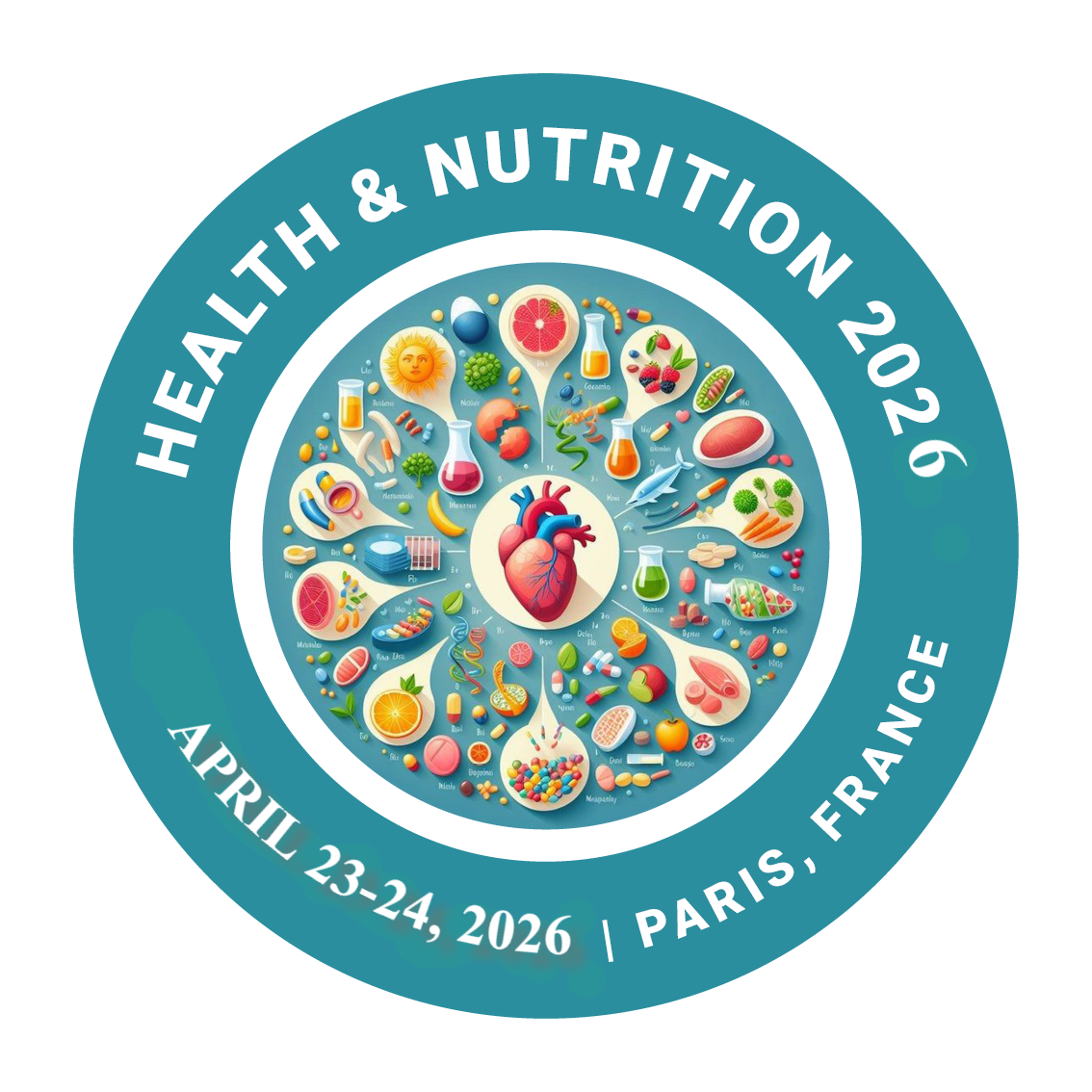Call for Abstract
Scientific Program
8th World Summit on Health Nutrition, will be organized around the theme “Innovations and Strategies for Global Health & Nutritional Well-being”
HEALTH & NUTRITION 2026 is comprised of keynote and speakers sessions on latest cutting edge research designed to offer comprehensive global discussions that address current issues in HEALTH & NUTRITION 2026
Submit your abstract to any of the mentioned tracks.
Register now for the conference by choosing an appropriate package suitable to you.
The gut micro biome is central to digestion, metabolism, and immunity. This track explores microbial diversity, dysbiosis, and how probiotics, prebiotics, and dietary fibers influence gut health and systemic well-being.
Technology is revolutionizing nutrition. This track highlights AI-driven dietary tracking, mobile health apps, tele-nutrition, and digital innovations that enhance dietary assessment, behaviour change, and data-driven decisions.
Early-life nutrition sets the foundation for lifelong health. This session discusses breast milk benefits, the science behind infant formulas, regulatory standards, and feeding practices for optimal infant development.
Women’s nutritional needs vary across life stages. This track covers fertility, menstrual health, pregnancy, menopause, and conditions like PCOS, emphasizing dietary strategies for hormonal balance and disease prevention.
Nutrition significantly impacts immune function. This session explores immune-supportive nutrients like zinc, vitamin D, and antioxidants, alongside anti-inflammatory diets and the gut-immune connection in promoting resilience.
Nutrigenomics studies how nutrition interacts with genes, while metabolomics tracks metabolic responses. This track uncovers the potential of omics technologies in developing personalized nutrition interventions and disease prediction tools.
Malnutrition and food insecurity continue to threaten global health. This session highlights humanitarian strategies, community nutrition programs, and innovations aimed at reducing under nutrition, hunger, and hidden hunger.
Nutritional care is crucial in managing eating disorders and supporting mental well-being. This session delves into the psychological, emotional, and dietary aspects of conditions like anorexia, bulimia, and their treatment pathways.
Supplements and nutraceuticals are increasingly used for disease prevention and wellness. This track examines evidence-based use, formulation, safety, and regulatory concerns related to vitamins, minerals, herbs, and bioactive compounds.
Food safety ensures the integrity of the global food supply. This session includes risk assessment of contaminants, foodborne pathogens, allergens, labelling regulations, and strategies to prevent food poisoning and fraud.
Precision nutrition aims to tailor diets to individual needs based on genetics, metabolism, and lifestyle. This track discusses advances in nutrigenetics, AI in nutrition planning, wearable technologies, and micro biome-based personalization.
Plant-based diets are gaining attention for both health and environmental reasons. This session covers nutrient adequacy, transition strategies, and how sustainable eating habits contribute to personal wellness and global ecological balance.
Aging populations face unique nutritional needs. This track focuses on maintaining health in older adults, including diet’s role in preventing cognitive decline, frailty, osteoporosis, and promoting longevity through balanced nutrition.
With rising obesity and metabolic syndrome cases, nutrition remains a cornerstone of management. This session explores dietary strategies for prevention and treatment, including lifestyle changes, low-GI diets, and insulin sensitivity improvement.
Pediatric and maternal nutrition is essential for optimal growth, development, and long-term health. This track covers prenatal nutrition, breastfeeding, complementary feeding, and strategies to combat childhood malnutrition and developmental delays.
Sports nutrition supports physical performance, endurance, and recovery. This session will examine energy balance, nutrient timing, hydration, and supplements tailored for athletes and active individuals across age and performance levels.
Functional foods provide health benefits beyond basic nutrition, such as improving immunity or reducing disease risk. This track discusses bioactive compounds, probiotics, fortified foods, and clinical studies validating their therapeutic potential.
Nutritional epidemiology examines the links between diet and disease in populations. This session will highlight methodologies, dietary assessment tools, and the use of epidemiological data in developing guidelines and influencing public health policy.
Clinical nutrition focuses on applying nutritional science in healthcare settings to manage and treat disease. This track covers therapeutic diets, medical nutrition therapy, and dietary interventions for various clinical conditions, including cancer, diabetes, and gastrointestinal disorders.
Public health nutrition plays a critical role in promoting well-being across populations. This track explores nutritional policies, large-scale interventions, and public health strategies designed to address malnutrition, dietary-related diseases, and inequalities in food access worldwide.

